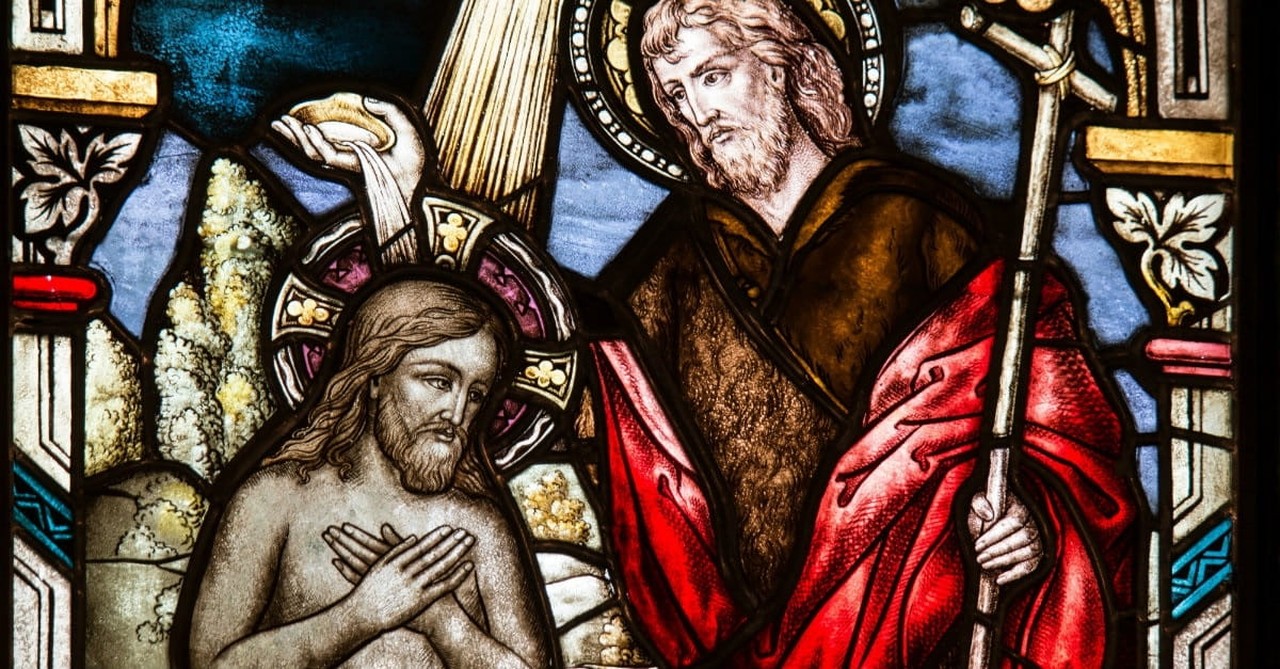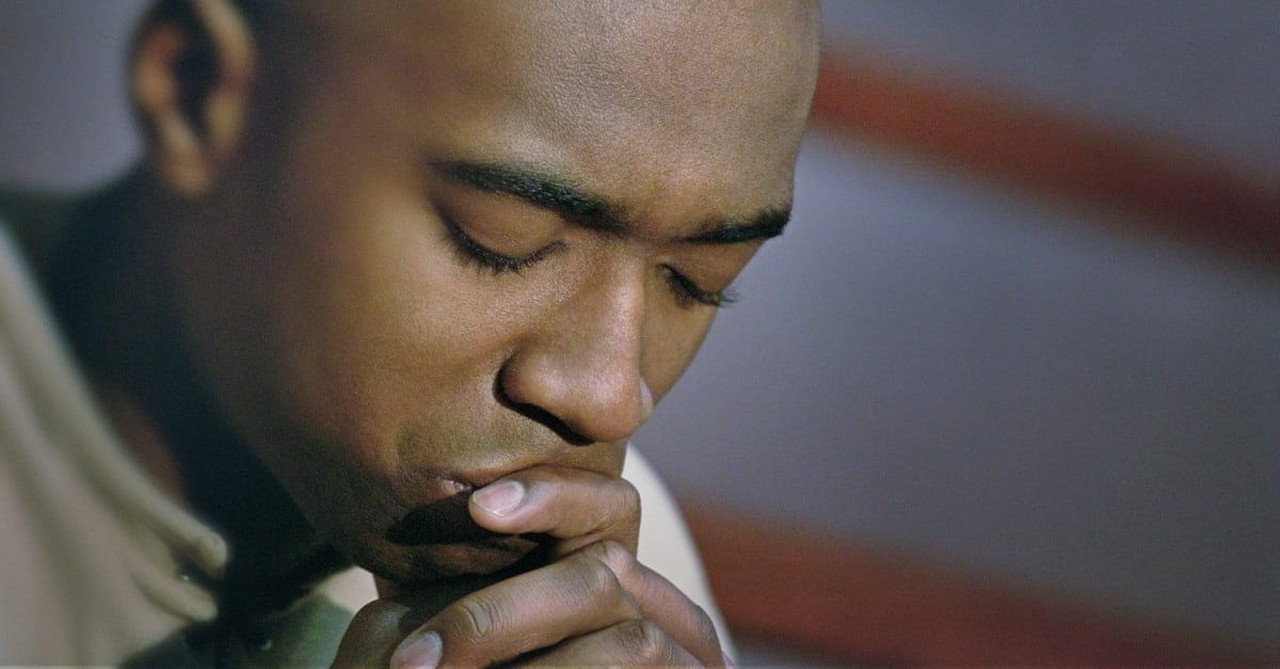
Jesus tells us there’s something about a child’s way of believing that ought to be true of all of us. We must, he tells us, become like them if we’re going to enter the kingdom of God at all. In one sense, it’s true, children are often hyper-literal. I remember thinking as a child that a “soul” was a little version of myself located in one of the chambers of my heart (and wearing a soldier’s uniform, for some reason).
But, in the more important ways, children are open to mystery and paradox in ways adults often aren’t. Children explore the world around them with a wide-eyed sense of wonder. They don’t comprehend it all, and they know they don’t comprehend it all.That’s the kind of blessed ignorance I believe Jesus commends. In order to believe, you must trust everything God has said to you, but you must also see him, not your own comprehension, as Lord. To see at all we must know that we “see through a glass darkly” (1 Cor. 13:12).
With that the case, we ought to boldly say to our children, “God is One and God is three. I can’t fully explain all of that because that’s how big and mysterious God and his ways are. Isn’t that wonderful?” When your child says, “That boggles my mind,” don’t respond with a worried handwringing but with a twinkle in your eye. “I know!” you say. “Me too! Isn’t that wild, and great!” That doesn’t end the conversation, of course. It only begins it. But we’ve got several trillion years and beyond to explore the depths of the Trinitarian reality. A start is what we need.
And learning of God’s oneness and threeness in terms of wonder and awe is a good place, I think, to start vaccinating our children from the kind of sterile rationalism, Christian or atheist, that can lead to a boring, despairing, tragically normal sort of life. -Russell Moore on "How to Explain the Trinity to Children"
Here are 10 things you should know about the Trinity:
1. The Trinity is something God wants us to know.

1. The Trinity is something God wants us to know.
SLIDE 1 OF 10
If you believe the Bible reveals that God is Father, Son, and Holy Spirit, then you ought to believe that God made this known because he wants us to know it. "The secret things belong to the LORD," but God's triunity is not among those secret things, or he wouldn't be talking about it and neither would we. "The things that are revealed belong to us" (Deu. 29:29).
Image courtesy: ©Thinkstock/ManTech2000
2. The doctrine of the Trinity is not illogical.

2. The doctrine of the Trinity is not illogical.
SLIDE 2 OF 10
It doesn't teach that God is three persons in one person, or three beings in one being, or three in one in some abstract sense. It teaches that God is three persons in one being. Partly because there are no other examples of such a thing, God's triunity transcends our rational comprehension. But it doesn't violate logic or make a claim that it nonsensical.
Image courtesy: ©Thinkstock/Wavebreakmedia Ltd
3. You should give up on looking for an illustration of the Trinity.

3. You should give up on looking for an illustration of the Trinity.
SLIDE 3 OF 10
God's triunity is one of those divine realities that have no parallel, like "being the creator of everything from nothing," or "being omnipotent." Any illustration you think of for such realities is vastly more unlike God than like God.
Image courtesy: ©Thinkstock/Juanmonino
4. The Father sent the Son and the Holy Spirit to save us; that is why we know about the Trinity.

4. The Father sent the Son and the Holy Spirit to save us; that is why we know about the Trinity.
SLIDE 4 OF 10
God didn't make his triunity known to us by informing us of facts about it. Instead, he made it known through the incarnation of the Son and the outpouring of the Holy Spirit. The revelation of the Trinity took place in those acts, which God then explained.
Image courtesy: Pexels.com
5. God would have been the Trinity even if nothing existed but God.

5. God would have been the Trinity even if nothing existed but God.
SLIDE 5 OF 10
The doctrine of the Trinity is a teaching about God's eternal, essential being. So even if everything we know about the Trinity is derived from God's outward works as creator and (especially) redeemer, the Trinity would have been itself even without having done these things.
Image courtesy: Unsplash.com
6. The Trinity is always bundled with the gospel.

6. The Trinity is always bundled with the gospel.
SLIDE 6 OF 10
It's the doctrine of who God must be if salvation is what we think it is. The Father who gave his Son and Spirit to save us must be a Father who always had a Son and Spirit. If you describe the Trinity and then have to tack on the fact that the Trinity saves, you probably described it too abstractly in the first place. The Bible bundles Trinity and gospel, and so should we.
Image courtesy: ©Thinkstock/BrianAJackson
7. You're already soaking in it.

7. You're already soaking in it.
SLIDE 7 OF 10
Whether you have been attending to it or not, everything about the Christian life works only because there is a Trinitarian reality underlying it. If you got saved, you got picked up by the Trinity and brought into God's own fellowship. Learning about the Trinity is a matter of learning the deeper reasons why this Christian life works.
Image courtesy: Pexels.com
8. Prayer and worship have a Trinitarian structure.

8. Prayer and worship have a Trinitarian structure.
SLIDE 8 OF 10
Every time Christians approach God, they come before God (the Father) in the name of Jesus (not in their own name) by the power of the Spirit (not by their own power). Again, this is true even if they're not consciously thinking about it.
Image courtesy: ©Thinkstock/DesignPics
9. You don't have to choose between being Christ-centered or being Trinity-centered.

9. You don't have to choose between being Christ-centered or being Trinity-centered.
SLIDE 9 OF 10
The simple reason for this is that Christ is Trinity-centered, right in the middle of the Trinity as the Son sent by the Father and filled with the Spirit. If you focus on Jesus properly, you will find yourself necessarily focusing on the Trinity—as long as you don't focus on Jesus in a Father-forgetful or Spirit-ignoring way.
Image courtesy: ©Thinkstock/SIphotography
10. You can be a good Trinitarian without talking about the Trinity all the time.

10. You can be a good Trinitarian without talking about the Trinity all the time.
SLIDE 10 OF 10
The doctrine of the Trinity is the vast, deep background behind all our theology, and when we explicitly talk about it we make a comprehensive claim about who God is if the gospel is true. But often the background stays in the background, and enables us to say particular things about Jesus, discipleship, the cross, the Holy Spirit, and so on, without making the big picture explicit. That's how the New Testament mostly does it, so you're in good company. Go ahead and talk about the Trinity sometimes and think about it deeply sometimes. Praise the Trinity at all times, and when necessary, use the word "Trinity." But don't feel like you have to focus mentally on this gigantic doctrine at all times in order to be a good Trinitarian.
Content taken from the article, "10 Things You Should Know about the Trinity," written by Fred Sanders. Originally published by Crossway.org, used with permission.
Image courtesy: ©Thinkstock/B-C-Designs
Originally published May 17, 2017.







